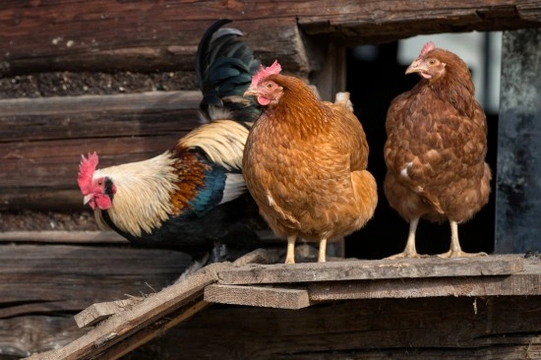Pets
Pets for studWanted petsBreedersAccessories & services
Knowledge hub
Support
Support & safety portal
The Importance of Ventilation in the Chicken Coop
Chickens produce an amazing amount of moisture, heat and ammonia which is why it's so very important for chicken coops and houses to be well ventilated both during the warmer summer weather and the colder winter months. Hens may be small feathered creatures, but they can be incredibly messy which means their houses need to be cleaned out on a daily basis and why ventilation is so crucial to your bird's well being. Others reasons include the following:
Good Ventilation Removes Humidity and Dampness
When it comes to humidity, chickens can generate an amazing amount of water vapour which they do as they breath and poo! Chickens do not urinate as such but instead, the water they ingest is excreted in their droppings. However, poultry do process much more water than most people think and this makes the air in their coops and chicken houses very humid which is especially true in colder climates.
Chickens living in humid, damp environments are more likely to suffer from respiratory disorders and it increases the risk of birds suffering from frostbite when the temperature outside is really cold. Poultry can generally put up with quite cold conditions as long as the air is dry but do not do so well if it is humid and/or clammy.
Good Ventilation Takes Out Harmful Ammonia Fumes
It would be nigh on impossible to keep chicken coops poop free all of the time and especially overnight. As such as soon as a dropping hits the floor, harmful ammonia has already been released into the chicken coop's environment and this builds up overnight. Too much ammonia in the air is not good for your chicken's well being because it makes them more susceptible to respiratory viruses that may be floating around in the environment.
If you can smell ammonia in a chicken coop it not only needs cleaning out but it needs more ventilation too. Long term exposure to ammonia could lead to all sorts of health issues including damaging your birds lungs.
Ventilation Helps Keep Coops Cool in the Summertime
If a chicken's body gets too hot and this is anything over 90 degree F, it can lead to real health issues. Tour birds may even suffer heat stress which can prove fatal and this is particularly true of larger and heavier breeds. The optimum body temperature of a chicken is anything below 75 degrees F so a well ventilated coop will ensure they don't get too hot during the hotter summer months.
Do Coops Need All Year Round Ventilation?
Chicken coops and houses must be ventilated all year round and this includes during the colder winter months. However, if there are a few nights when temperature really drop lower than usual, you may have to close everything up but times like this are more the exception rather than the rule.
The Amount of Ventilation Needed
It is far better to have too much ventilation that too little in a chicken coop which means creating more holes than you might originally have planned for. It's also a good idea to have one big vent that can be opened during the hotter summer weather which will ensure your birds don't ever overheat when at night. You have to ensure the temperature inside never exceeds the heat on the outside and by incorporating one or two large vents that can be opened up will help prevent this from happening.
Smaller vents and holes should be placed on each side of the coop or chicken house which can be regularly cleaned out to ensure air gets through and circulates around the coop. However, it's important to be able to shut both small and large vents when needed and this is especially important for those rare occasions when the temperature really drops to below normal or if there are very heavy downpours that will allow water into the housing.
The rule of thumb, however, is the more birds you keep in a coop, the more ventilation would be needed to keep their environment healthy and ammonia free to prevent any nasty respiratory diseases from taking hold.
What About Drafts?
The one thing that chickens really do not like is a draughty environment so it's important that air holes and ventilation are fitted with flaps or covers. This is why the positioning of air holes and vents is so important because the last thing you want is for air to be aimed directly at your birds when they are on their perches.
Placing the holes and vents higher up in a coop just under any roof overhangs and eaves is ideal and you should be able to shut them when needed either when the weather is really cold or extremely windy. Holes should never be too big nor should they be too small which can defeat the object of having them and which may cause more problems than doing any good.



